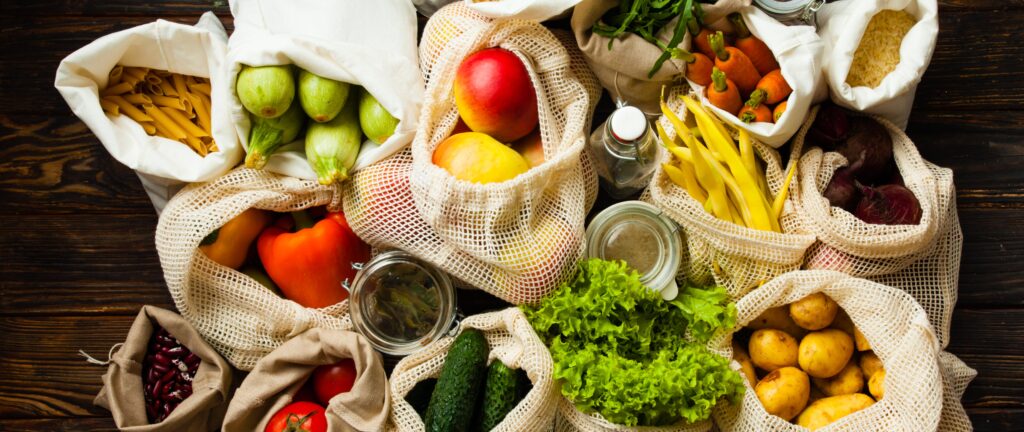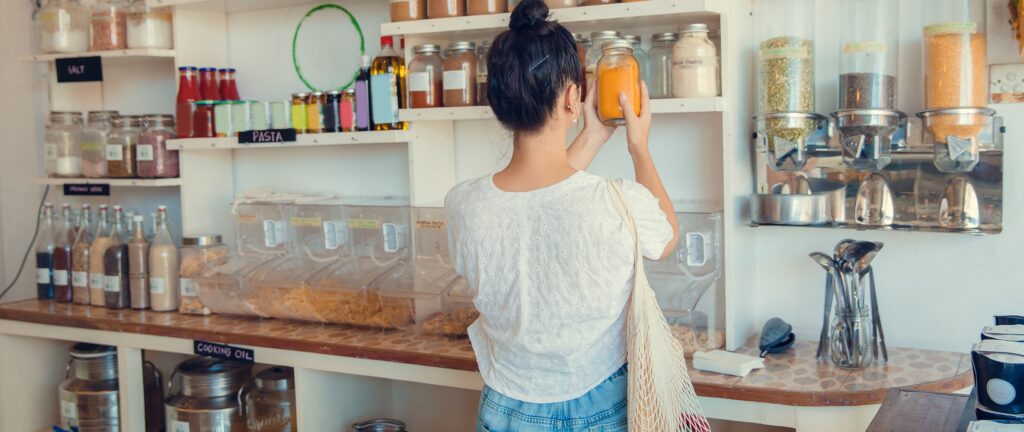3 simple tips for reducing plastic in your life
Hot on the heels of Earth Day’s focus on plastic back in April, it’s time for Plastic Free July. Plastic Free July is a global movement that encourages individuals to reduce their plastic consumption and embrace sustainable living. This month-long initiative highlights the importance of minimizing plastic waste to protect our environment, preserve our oceans, and safeguard wildlife.
Here at Shepherd’s Dream, reducing our plastic usage is a big part of our environmental ethos, and our mattresses and bedding products are plastic free. By opting for sustainable options in our bedrooms, we can make a substantial impact on our personal health and the environment.
Join us on this journey towards a more sustainable and plastic-free life! Below, we’ll share some simple tips for hopping on the plastic-free bandwagon, and we’ll explore why plastic isn’t awesome in the bedroom.

A Plastic-Free Sleep Sanctuary
Historically, mattresses were always made with some sort of natural material like horsehair, straw, feathers, and—our personal favorite!—wool. It wasn’t until the mid-20th Century that plastics became dominant in mattresses. Plastics were initially introduced to help preserve our natural world, as things like ivory and tortoiseshell demands were decimating wildlife populations, and plastics were widely hailed as a wonderful solution. Until, that is, we began to realize that plastics have a hard time going away.
As if that wasn’t bad enough, the same time period was marked by a particular habit—smoking. And it quickly became obvious that smoking and these new plastics-based mattresses did not go together. As a result of people falling asleep with lit cigarettes and discovering that plastic mattresses melt and release toxic fumes, legislation was passed requiring that mattresses be treated with chemical fire retardants. We now know that many of these are linked to organ damage, nervous system problems, hormone disruption, and cancers. Look out for chemicals like:
- Polybrominated Diphenyl Ethers (PBDEs)
- Boric Acid
- Antimony Trioxide
- Decabromodiphenyl Oxide
- Melamine
- Vinylidene Chloride
In an effort to avoid these chemicals, some mattress manufacturers began using fiberglass as their fire resistant barrier. Unfortunately, the fiberglass shards can work their way out of the mattress into your skin or into your bedroom where they can be inhaled or swallowed.
For these reasons, Shepherd’s Dream uses none of the above—just wool. Wool is naturally flame resistant and nontoxic, and it’s also sustainable, unlike anything made with plastics. When we consider that 50,000 mattresses are thrown “away” into US landfills EACH DAY, we’re looking at a massive environmental issue. Our natural materials will return to the earth, and in the case of wool, it’s actually even beneficial for soil.

3 Doable Tips for Reducing Your Plastic Usage
Environmental concerns like the plastic problem can seem overwhelming. It’s important to remember that the small, daily decisions we make really matter. In that spirit, here are three of our favorite pro tips anyone can do:
- Avoid Single-Use Plastics. This is where some of the most impact can be made by individual choices. Stock up on reusable shopping bags, coffee cups, water bottles, straws, on-the-go silverware, and food to-go containers. These simple measures also help improve your health by reducing exposure to plastics, a known health risk.
- Focus on Natural Fibers for Clothing and Home. We’re learning more and more about the dangers of plastics, and when it comes to the textiles our clothes and furnishings are made with, these are materials with which we’re in constant contact. It’s now known that microplastics can be absorbed through the skin, and they also make their way into waterways via our laundry. Join the natural fiber revolution with cotton, wool, silk, and linen. Have we mentioned we know where you can find excellent all-natural bedding and mattresses?
- Get Choosy at the Grocery Store. Food packaging is a major source of plastic waste. Bring reusable produce bags or forgo them entirely (do bananas really need one?), fill your reusable containers in the bulk section, and visit the butcher counter. If you’re unable to find unprepackaged meat or produce, chat with your local grocery store to see if they are open to suggestions or alternatives. The farmers’ market is a great way to avoid packaging waste, and eating whole foods that don’t come in packaging is beneficial for your health too. And then be sure to bring it all home in your reusable shopping bags.

Reduce, Reuse, Recycle
And don’t forget to Refuse plastics as well—especially single use!
Be sure to check out Plastic Free Foundation’s Plastic Free July campaign at their website or on Instagram. Every step we take is beneficial for the health of both humans and the planet, and together we can dream a plastic-free world into being.
We’ve written about plastics before on our Counting Sheep blog, keep reading if you’re up for more:
- Living That Plastic-Free Lifestyle
- Celebrating Earth Day Plastic Free
- 4 Pro Tips for Reducing Plastic Waste
Thanks so much for tuning in! There’s more where that came from on Instagram, and be sure to sign up for our Ewe’s Letter. We don’t spam or share your email (promise!), only sending out periodic emails with insider deals and interesting tidbits. Plus, you automatically receive $50 off your next purchase of $250 or more by earning Dream Points.
Until next time, sweet dreams!

